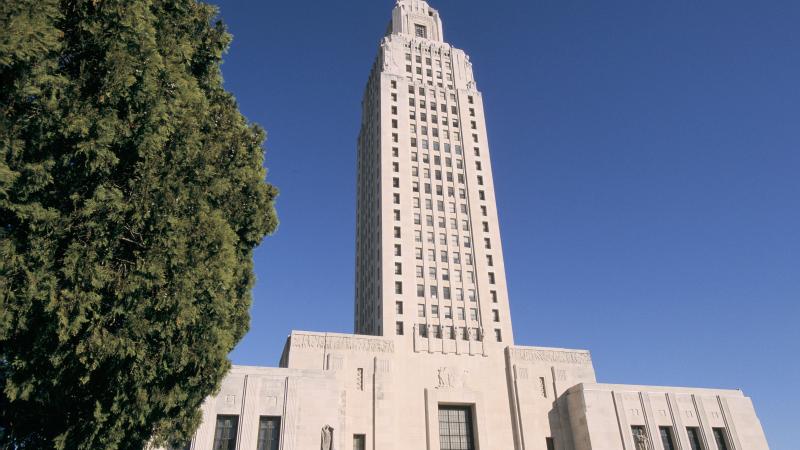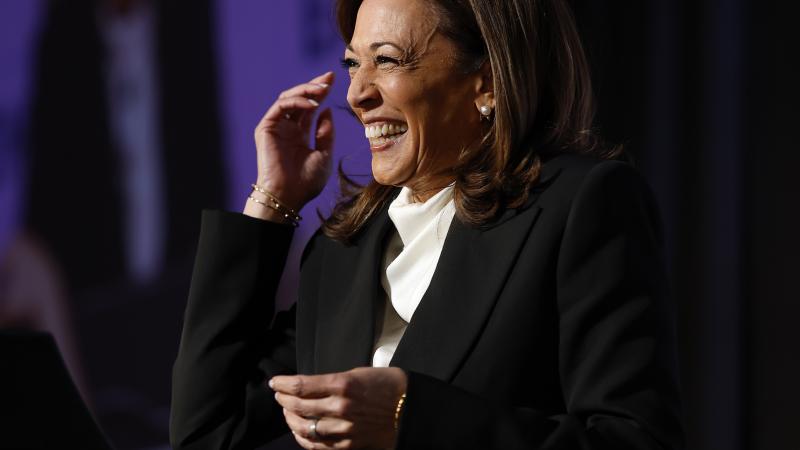North Carolina hospitals used COVID relief funds to expand bottom lines instead of care, report says
The data showed those hospital systems recorded $7.1 billion in growth in cash and financial investments from 2019 to 2021
North Carolina's largest nonprofit hospital systems recorded billions in net profits during the pandemic as they collected $1.5 billion in taxpayer-funded COVID relief, all while billing more dollars to impoverished patients eligible for charity care, according to a new report.
State Treasurer Dale Folwell gathered with health care experts, lawmakers and academics on Wednesday for a press conference in Raleigh to unveil a new report titled "North Carolina Hospital Systems Profit During COVID."
The document details how the state's dominant nonprofit hospital systems took COVID relief dollars meant for struggling hospitals while recording billions of dollars of growth in cash and investments, while only dedicating a sliver of the windfall to increasing charity care to patients.
"No matter what political party you're a member of, … you should care about this massive transfer of wealth," Folwell said, pointing to Atrium Health's more than $12 billion bank account. "They made $12 billion on the backs of taxpayers."
"This is not a Democrat or Republican issue, it's a moral issue," he said.
The report, which analyzed the audited financial statements of the state's seven largest hospital systems, was conducted in collaboration with experts at the North Carolina State Health Plan and the National Academy of State Health Policy, with a peer review by Johns Hopkins University researchers.
The data showed those hospital systems recorded $7.1 billion in growth in cash and financial investments from 2019 to 2021. In 2021, the seven systems reaped $5.2 billion in net profits, with all but one enjoying higher net profits than before the pandemic.
The growth came as the large hospital systems took in $1.5 billion in taxpayer-funded coronavirus relief meant to support struggling hospitals from 2020 to 2021, as well as another $1.6 billion in Medicare Accelerated and Advance Payments, as rural hospitals struggled to maintain services.
The report also found the hospital systems shared little of the profits with economically disadvantaged patients, with a third of North Carolina hospitals spending less on charity care in 2020.
Overall, charity care spending went from just under $1 billion in 2019 for the state's 104 hospitals to $1.2 billion in 2020, at the same time the average percentage of patients eligible for charity care roughly doubled. Further, two hospitals even sued North Carolinians over medical debt during the pandemic, while others encouraged thousands to open high interest medical credit cards.
"What we're seeing here, we see in other states also," said Marilyn Bartlett, CPA and senior policy fellow at NASHP, who worked on the report.
"Taxpayers' hard-earned money is being wasted," she said, adding that large hospitals appeared to use taxpayer relief to consolidate the market and power to squeeze higher prices.
Officials noted that it's nearly impossible to see how, exactly, the nonprofit health systems spent COVID relief and other taxpayer money, but it's clear much of it was funneled into investments rather than a purported charitable mission.
"The power that's gained by the hospital systems as a result of this is not only used to strengthen their own market, but it's also used to acquire independent physicians," said Dale Owen, CEO of Tryon Medical Partners, an independent physicians' group in Charlotte. "This is a big socioeconomic effect, as well, cause employers are having to pay more in healthcare dollars and salaries as a result can't go up as much."
The report calls on hospitals to return unnecessary, taxpayer-funded relief and encourages lawmakers to consider reforms to increase transparency and accountability.
"The solution is clear pricing, getting rid of secret contracts, reference based pricing that gets rid of a nearly 100% profit margin over Medicare reimbursement rates, push the power to the consumer, stop weaponizing people's credit scores, and make sure charity care is commiserate with the tax benefit they're receiving in this state," Folwell said.














